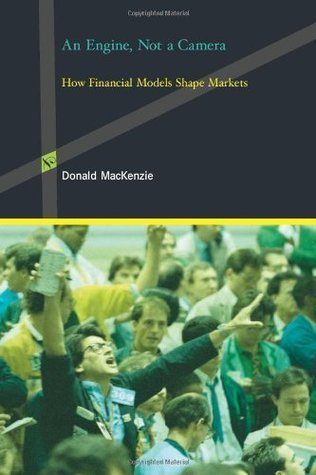What do you think?
Rate this book


In An Engine, Not a Camera, Donald MacKenzie argues that the emergence of modern
economic theories of finance affected financial markets in fundamental ways. These new, Nobel
Prize-winning theories, based on elegant mathematical models of markets, were not simply external
analyses but intrinsic parts of economic processes. Paraphrasing Milton Friedman, MacKenzie says
that economic models are an engine of inquiry rather than a camera to reproduce empirical facts.
More than that, the emergence of an authoritative theory of financial markets altered those markets
fundamentally. For example, in 1970, there was almost no trading in financial derivatives such as
"futures." By June of 2004, derivatives contracts totaling $273 trillion were outstanding
worldwide. MacKenzie suggests that this growth could never have happened without the development of
theories that gave derivatives legitimacy and explained their complexities. MacKenzie examines the
role played by finance theory in the two most serious crises to hit the world's financial markets in
recent years: the stock market crash of 1987 and the market turmoil that engulfed the hedge fund
Long-Term Capital Management in 1998. He also looks at finance theory that is somewhat beyond the
mainstream -- chaos theorist Benoit Mandelbrot's model of "wild" randomness. MacKenzie's pioneering
work in the social studies of finance will interest anyone who wants to understand how America's
financial markets have grown into their current form.
390 pages, Kindle Edition
First published April 14, 2006